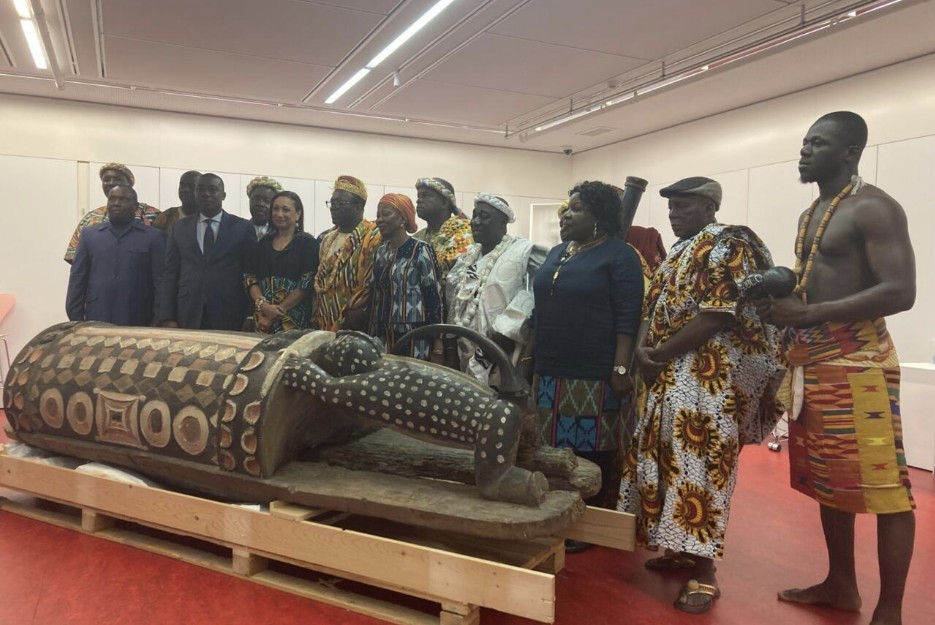Politics at the Olympic Pool
- Paolo San Jose
- Sep 30, 2024
- 3 min read
The Olympic Games is a powerful forum for cooperation. This year’s Paris Games was a global spectacle of inspiration and victory, bridging nations through a universal love for sport. However, with athletic prowess and nationalism on display for an audience of billions, it can be difficult to suppress the geopolitics that play out behind the Games’ wider backdrop.
This year, Team USA’s historical dominance at the Olympics faced a formidable challenge from a rival superpower - China. While China finished second to the US on the overall medal tally, both won 40 gold medals each, marking the first time a gold medal tie had occurred atop the medal table.
China’s superlative performance was especially evident in the swimming pool, an arena that often sees an Australian-American arm’s race. China’s 36 medals in the pool included a world record swim by Pan Zhanle in the 100m freestyle, beating Australia’s previous gold-medallist Kyle Chalmers by a body length, and a gold medal in the men’s 4x100 medley relay that ended the US’s six decade-long winning streak in the event. While France’s Leon Marchand won 4 gold medals in the pool, it was in fact China’s Zhang Yufei that left the pool with the most number of medals overall, winning six. China’s record-breaking splash, however, has not come unquestioned.
In April, the New York Times revealed that 23 members of the Chinese swimming team tested positive for a performance-enhancing substance just months before the 2021 Tokyo Olympics, and were allowed to compete in the Games. China’s Anti-Doping Agency (CHINADA) concluded that the trace amounts of TMZ that were found was a result of food contamination, and incapable of performance enhancement. Eleven of these athletes went on to compete in Paris.
Upon the revelation, the US Anti-Doping Agency (USADA) was quick to call a cover-up, sparking a series of diplomatic jabs between the USADA and the World Anti-Doping Agency (WADA). In actuality, WADA didn’t accept CHINADA’s findings at first, and requested the entire case file to conduct their own thorough review. In the end, WADA concluded that the positive tests were in fact from meat contamination, and that the inconsistent nature of the positive results among the athletes concerned did not indicate intentional doping practices, even microdosing.
Nonetheless, Chinese athletes were subjected to a higher amount of testing than their counterparts. World Aquatics stated that Chinese swimmers were tested an average 21 times since the beginning of the year, compared to just four for Australian athletes, and six for American athletes. During the Games, China’s swim team had complained of being tested at 5am and midnight, and being forced to rest on hotel lobby sofas while awaiting results.
Despite WADA’s clearance, the doping allegations fuelled a wave of hostile public opinion about Team China during the Games. It was difficult to find news of China’s wins without the word ‘doping.’ Scepticism surrounding China’s success opened conversation to inherent Sinophobia. Following Pan Zhanle’s aforementioned win over Chalmers, an Australian coach attributed the win to drugs, taking to Instagram to label the win as ‘humanly impossible.’ After China’s men’s medley relay team claimed gold, British swimmer Adam Peaty urged WADA to ‘do better’ in handling China’s doping allegations.
Various observers believe that China has been unfairly singled out. University of Canberra’s Catherine Ordway notes that China’s athletes had faced a level of scrutiny that would have been ‘completely repugnant and unacceptable’ had it been targeted towards the US or Australia. Many in social media also noted the stark contrast in attitudes towards the US, which have had numerous high-profile doping cases from the likes of Olympian Marion Jones to cyclist Lance Armstrong.
The Paris Games showcased the fragility of sporting diplomacy. Though the Olympics aim to bring the whole world under one roof, it can be difficult to separate the Games from the political tensions that the nations bring with them. The China-US rivalry in Paris can be read as reflecting China’s rise as a contemporary geopolitical power. Whether the 2028 Games in Los Angeles will make for a greater sporting arena than a political arena remains to be seen.
Photo credit - MARTIN MEISSNER / AP





Comments